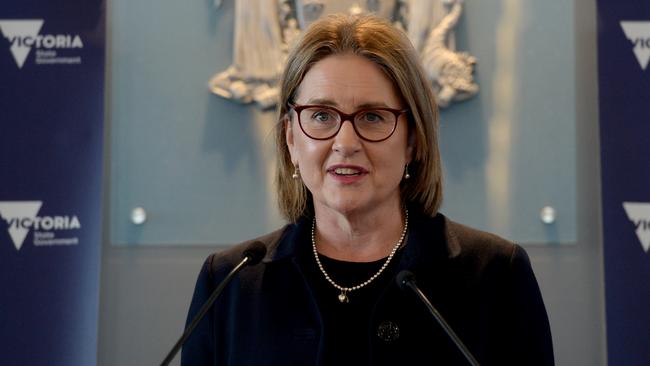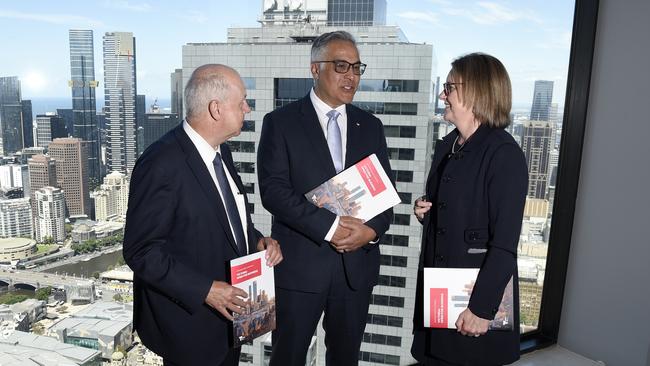Leading business figures to advise Victorian Premier Jacinta Allan on economy
Visy chair Anthony Pratt, Herald & Weekly Times chair Penny Fowler and AFL CEO Andrew Dillon will form part of the newly established Victorian Premier’s Business Council.

Leading business and sporting figures including Visy chair Anthony Pratt, Herald & Weekly Times chair Penny Fowler and AFL chief Andrew Dillon will provide a direct line of advice from business to Victorian Premier Jacinta Allan as part of her government’s new strategy to strengthen Victoria’s economy.
The Premier’s Business Council, announced on Tuesday as part of the government’s new Economic Growth Statement, will be chaired by former Australia Post CEO Ahmed Fahour and comprise 14 other business figures from a range of sectors.
Other members include NAB CEO Andrew Irvine, Bunnings managing director Mike Schneider, Monash University vice-chancellor Sharon Pickering, Melbourne lord mayor Nick Reece, Asian Australian Business Association of Whitehorse president Bihong Wang and RBA board member Carol Schwartz.

As part of Victoria’s economic growth plan, Ms Allan and her Treasurer, Tim Pallas, said they would halve the number of business regulators in the state by 2030.
The government said reducing red tape by slashing the number of regulators from 37 to 18, reducing double up, speeding up and digitising application processes and removing unnecessary permits would save businesses $500m over the next five years.
The Economic Growth Statement, which features a raft of reforms aimed at delivering a stronger Victorian economy, includes a $20m industry development fund aimed at boosting the state’s five priority sectors: advanced manufacturing and defence; health technologies and medical research; circular economy; digital technologies; and agribusiness.
The government will also speed up environmental effects statement processes, streamline liquor and planning approvals for hospitality businesses, introduce an “investment front door” as a streamlined entry point for businesses looking to invest in Victoria and deliver a 10-year plan to unlock industrial land.
The Victorian government, which is facing pressure over its soaring debt levels, with net debt forecast to reach $187.8bn by June 30, 2028, did not deliver any tax cuts in the package.
While the initiatives were largely welcomed by business, Australian Industry Group head of Victoria Tim Piper said he would have liked to have also seen tax cuts included in the statement.
“Tax cuts are really important to get things moving within the state, we are highly, highly taxed,” Mr Piper said.
The Business Council of Australia, which recently named Victoria the worst place in the country to do business, welcomed the plan as positive steps towards boosting investment but said the state’s comparatively high payroll tax rate should be reduced.





To join the conversation, please log in. Don't have an account? Register
Join the conversation, you are commenting as Logout